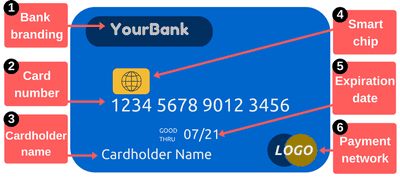1/ [Live listen thread — with many breaks because I’m mega busy atm]
Listening to @PaulGrewalMD on @PeterAttiaMD’s #TheDrive has been a pure delight thus far. I’m about a half hour in and Paul’s description of the “Energy Toxicity” model is almost dead on to my own view.
Listening to @PaulGrewalMD on @PeterAttiaMD’s #TheDrive has been a pure delight thus far. I’m about a half hour in and Paul’s description of the “Energy Toxicity” model is almost dead on to my own view.
2/ At about the 38m mark they are talking about de novo lipogenesis and how much (or little) carbs can truly contribute to it. I definitely feel it’s very context dependent. Note my “White Bread” experiment that was extremely low fat. cholesterolcode.com/wp-content/upl…
3/ Yet my TGs ramp up to 221 at the peak and my CGM is showing persistently high glucose. Unlikely this was greater VLDL synthesis/secretion given I also got 3 NEFA tests during and peak times show super low levels (unsurprising given insulin levels) cholesterolcode.com/wp-content/upl…
4/ In other words, I’m going with a greater overall DNL being the most likely explanation in this context. It just makes the most sense given the metrics.
5/ At around 48 minutes they get to discussing something I’m especially interested in— how language and framing influences how we think, particularly in the problem space of treatment.
6/ @PaulGrewalMD : “We have had that influence on us, whether we like it or not. Medical school is about learning a language, residency is about learning a language. So where is that language? Who is writing of the books?...”
7/ “Harrison had $11 million in industry funding when they’re talking to us about how we identify and categorize disease states, and then how to treat them... Why did we learn diabetes is called hyperglycemia? The treatment is this medication...”
8/ “Why wasn’t it like — this is the physiologic process that’s occurring and how do we reverse that process in terms of changing the paradigm?
He goes on to give an example that regarding psychotropic medication history in psychiatry.
He goes on to give an example that regarding psychotropic medication history in psychiatry.
9/ @PeterAttiaMD makes an excellent point on the likely reason for the pill-to-treat model being such a strong influence. He explains how communicable disease treatment was such a “game changer” for medicine (and it definitely was!)
10/ @PeterAttiaMD “So I think what happened is came into it’s maturity in an environment when that playbook worked really well...It’s sort of like, it’s trying to play that same game and apply that same strategy of ‘identify - give drug’ in a time where it doesn’t work as well..”
11/ “My beef is when everybody wants to throw the baby out with the bath water and say, ‘well, there’s no role for western medicine, and we should never be giving drugs, and if someone is walking around with a cholesterol of 300 mg/dL, that’s ok because they’re eating an ok diet”
12/ FWIW, I agree with a number of points Peter is making here:
1) The drug model coming up in this way makes a lot of sense given history with communicable disease intervention. I don’t know that this is inherently good or bad, it’s more of an inertia to be aware of.
1) The drug model coming up in this way makes a lot of sense given history with communicable disease intervention. I don’t know that this is inherently good or bad, it’s more of an inertia to be aware of.
13/
2) I do know many people who were practically science experiments, having been put on and off dozens of medications, went keto, and are now off all of them. But I worry for some it has manifested into a level of distrust that might be swinging too far in the other direction
2) I do know many people who were practically science experiments, having been put on and off dozens of medications, went keto, and are now off all of them. But I worry for some it has manifested into a level of distrust that might be swinging too far in the other direction
14/
3) I’ll leave the cholesterol statement for now until I listen further into the podcast. But needless to say, I’m not certainly one to say what level of cholesterol is okay, only what specific context I am “cautiously optimistic” about (metabolic triad).
3) I’ll leave the cholesterol statement for now until I listen further into the podcast. But needless to say, I’m not certainly one to say what level of cholesterol is okay, only what specific context I am “cautiously optimistic” about (metabolic triad).
15/ @PaulGrewalMD: I think the takeaway is: “Instead of being a nihilist, [be a] skeptic.” <— I love that sentence on so many levels!
16/ @PaulGrewalMD actually brings up me at 53m.
“Dave Feldman is not an MD, but why is there not an MD who came at it from his direction? Because we are inculcated in a different paradigm that doesn’t allow us to see the situation from the outside...”
“Dave Feldman is not an MD, but why is there not an MD who came at it from his direction? Because we are inculcated in a different paradigm that doesn’t allow us to see the situation from the outside...”
17/ “Not to say that he’s correct or what have you. But again, same with the low carb and the high carb. Even with cholesterol, you have the residual risk problem, even when you have the low LDL. And you have people with high cholesterol who never have a heart attack.”
18/ Peter discusses the “necessary, but not sufficient” regarding LDL for a bit, then comes to this point: “But where I also would push, and I’ll bet you would agree and I’ll bet Dave Feldman would agree is — what about hyperinsulinemia? What about elevated uric acid level?”
19/ “I mean there’s so many other metabolic factors that are driving it, and remember, you don’t need 200 mg/dL of LDL cholesterol. That just makes it much more likely that those sterols are going to be bombarding the arterial wall and get retained in the endothelium...”
20/ I often call what @PeterAttiaMD is describing here as the Accelerant Hypthesis. That LDL is like gasoline, the more you have lying around, the worse it can be when a spark comes into play. Necessary for a fire, but not sufficient without the spark.
21/ And FWIW, he could be right — it’s possible. All the more reason for the CitizenScienceFoundation.org endeavor.
22/Discussion on oxLDL.
I’m may be the odd man out, but I definitely believe LDL gets ox’d in the bloodstream quite frequently and endothelial cells often bind and remove them via scavenger receptors. How this plays out with transcytosis and proteoglycans could be very relevant
I’m may be the odd man out, but I definitely believe LDL gets ox’d in the bloodstream quite frequently and endothelial cells often bind and remove them via scavenger receptors. How this plays out with transcytosis and proteoglycans could be very relevant
23/ 1:06 @PaulGrewalMD “Talking about medical theories, I think the polyunsaturated fat thing is going to be the next identified demon we find. We already knocked out transfat, but polyunsaturated fats at macronutrient quantities I think have the potential to be very toxic,...”
24/ “... because they’re easily oxidized. The industrial process we use to refine them strips out the natural antioxidants. You don’t have the vitamin E, you don’t have any of these natural stabilizing compounds, and they create peroxyl radicals very easily.”
25/ While talking about when Peter fasts, Paul asks if his LDLp goes up. Peter says, “It would be predicted, I think, by Dave Feldman to go up, but I’ve only seen that once.”
— To be sure, my standard caveat is existing medication, particularly lipid lowering such as statins...
— To be sure, my standard caveat is existing medication, particularly lipid lowering such as statins...
26/ If I’m not mistaken (correct me if I am), this is relevant in Peter’s context as I believe he makes use of Rx such as statins and inhibitors for added reduction of LDLp levels.








